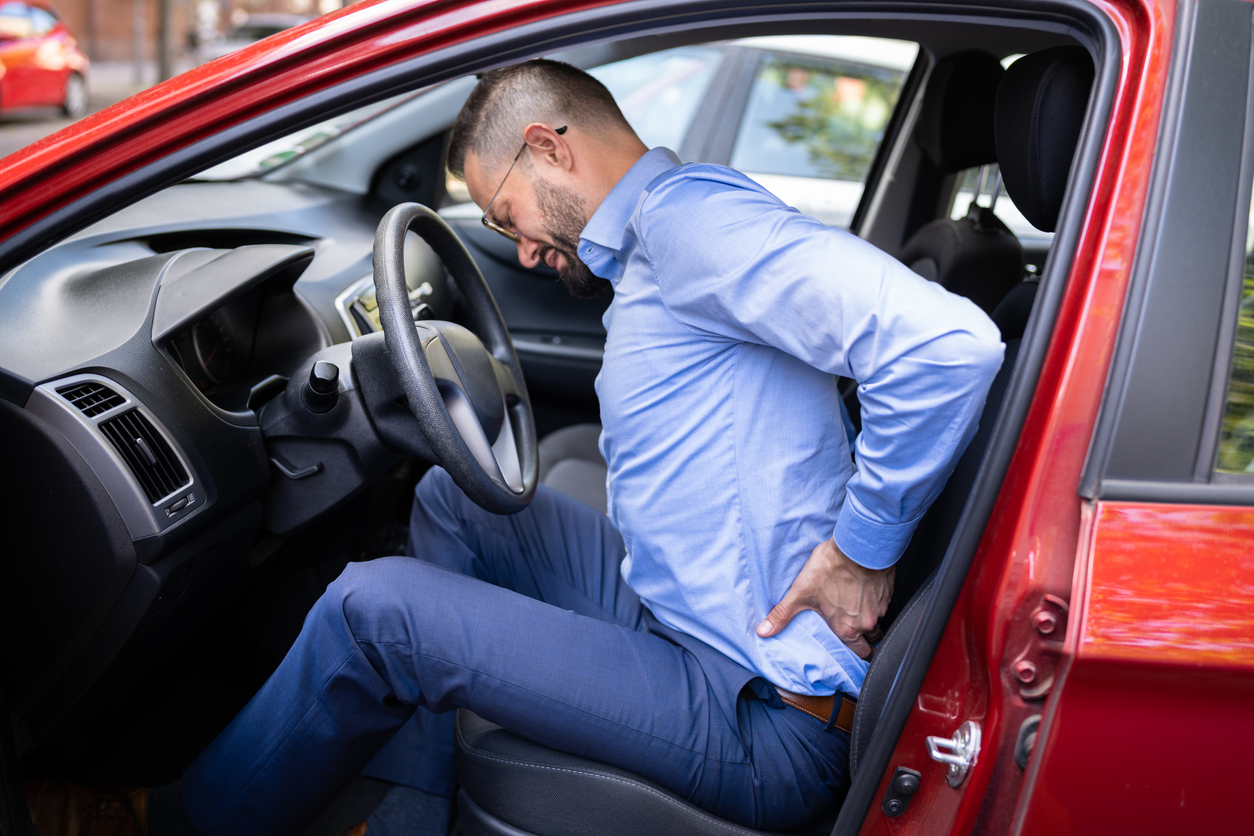Someone injured in a motor vehicle crash may experience shock, chaos, and confusion. Ordinary daily life has paused. Tasks such as going to work and doing chores may seem difficult or impossible. Just as every person is unique, so too might be their recoveries after a New York car crash. Some injuries—such as a fractured bone—may be readily apparent, while others may be more pernicious, slowly but inexorably worsening until they become unbearable.
What are some common symptoms of car accident injuries
- Severe headaches: Injuries whose effects may not be readily apparent include closed head injuries and traumatic brain injuries.
- Shoulder and neck stiffness or pain: Being rear-ended puts you at risk of whiplash, which can result in injuries to the intervertebral disks of the spine that can cause debilitating pain, stiffness, or fatigue and interfere with your ability to work and perform daily tasks.
- Abdominal swelling or pain: Such symptoms might indicate internal bleeding or other visceral injuries, which may require immediate emergency care
- Loss of feeling in the extremities: Whiplash can cause numbness and tingling in the arms and hands. Damage or nerve compression in the spine can have the same effect.
- Personality or cognitive changes: A brain injury may not be evident for days or weeks. Brain trauma can affect memory, concentration, or speech, or cause aggressive behavior. Immediate treatment lowers the risk of permanent brain damage.
What are some common car accident injuries?
Here are a few:
- Traumatic closed-head injuries: These don’t break the skin or cause bleeding but can cause intracranial pressure and/or brain swelling and require emergency surgery. Among the various kinds of traumatic closed-head injuries are:
- Intracranial hematoma: A hard blow to the head can cause blood to pool between the brain and skull, causing pressure and likely requiring surgery.
- Concussion: Usually caused by a blow to, or violent shaking of, the head. Symptoms include unconsciousness, headache, nausea, dizziness, slurred speech, problems with concentration.
- Contusion: The head is slammed or shaken so hard the brain bounces off the skull and bruises; hemorrhaging and even permanent damage can result. Unlike a concussion, whose effect on the brain is evenly distributed, a contusion is normally localized. Symptoms can include leg or arm numbness, a lack of coordination, and slurred speech.
- Whiplash: The most common type of injury resulting from nonfatal car accidents, this results from sudden, rapid, back-and-forth flexion and extension of the cervical spine on impact. The National Institute of Health defines whiplash as “a soft tissue injury to the neck.” In 1995, a Quebec task force comprising professors at McGill University, in Montreal, developed a classification system of whiplash-associated disorders based on severity. These range from Grade 0, characterized by neck stiffness without pain, to Grade 4, in which the patient has a fracture or dislocation or an injury to the spinal cord. Today, however, the medical consensus is that the severity or permanency of whiplash cannot be reliably predicted immediately after an accident.
- Tinnitus: If you have been in a car accident when you hit your head or the airbag deployed, you may experience tinnitus, a ringing in the ears. While tinnitus is not life-threatening, it can be distressing and affect quality of life. According to the National Institute of Deafness and Other Communication Disorders, tinnitus is caused by an abnormality in the inner ear that causes a person to hear noise, such as a ringing sound, though no external noise is present.
- Chest and upper-body injuries: Severe bruising, contusions, broken ribs, lacerations of the upper body—any or all of these can happen in a car crash. Many such injuries are sustained when a driver is thrown into the steering wheel or a passenger into the dashboard upon impact with an object or another car. Often these people being thrown around a vehicle on impact aren’t wearing seatbelts. The chest and upper-body injuries they suffer include:
- Open chest-wall, or pneumothorax, injury: Also known as a “sucking chest wound,” this can collapse the lungs.
- Massive hemothorax: Severe cuts that can cause blood to build up in the pulmonary lining and collapse the lungs.
- Tension pneumothorax: Compression and possibly deflation of the lungs from a buildup of air in the pulmonary lining.
- Flail chest: Ribs fracture in several places, often on impact with the steering wheel or dashboard. Areas of the rib cage loosed from chest wall.
- Leg and arm injuries: Typically, broken bones and deep cuts, these include:
- Comminuted fracture: A bone that’s broken into pieces, requiring surgery before a cast is applied.
- Simple fracture: A break that doesn’t penetrate the skin.
- Compound fracture: A break that penetrates the skin.
- Internal injuries: Typically found in victims of multi-car, high-speed accidents, these may not be immediately apparent but can worsen rapidly. Examples are a ruptured abdominal aorta, broken ribs that puncture organs, a ruptured spleen, and a damaged kidney or liver.
- Back injuries: Among the more common car accident injuries, these include fractured vertebrae, torn muscles, and a spine damaged to the point of paralysis. For example:
- Scoliosis: A serious car accident can lead to serious back and spine conditions, including scoliosis, a curvature in the spinal column. Sometimes underlying scoliosis is not caused by the car accident but becomes symptomatic for the first time. This is known as increased susceptibility or aggravation of a preexisting condition, and you can make a legal claim for it. Aside from pain, other signs of traumatic scoliosis include uneven shoulders, numbness or tingling in arms or legs, and uneven hips or ribcage. If you have back pain after a car crash, seek medical attention as soon as possible, even if the pain seems to be mild at first. If you delay, the insurance company may deny payment for medical treatment.
- Sciatica: A traumatic event, such as a car accident, can cause serious back issues, including sciatica. Sciatica is typically the result of an injury to the back, and in most cases, a herniated disc. These discs, made from soft tissue, can sometimes be damaged in a car accident and bulge or herniate out of their regular positions. This may put pressure on the sciatic nerve, leading to symptoms of sciatica. Symptoms of sciatica include numbness, tingling, and shooting pain in the lower back extending down the leg. Pins and needles in your toes or feet may also accompany sciatica. Sitting often increases the intensity of the pain. These symptoms are unique to sciatica. More severe forms of sciatica can take up to eight weeks to subside. Chronic sciatica does not go away on its own and may require surgical intervention. If you think you may be experiencing sciatica, you should seek medical attention as soon as possible.
Seeking medical care
Someone seriously injured in a New York car crash should seek medical treatment as soon as possible. Waiting to go to the emergency room or see a primary care doctor or urgent care provider will delay diagnosis and prevent you from developing a treatment plan and starting the road to rehabilitation. In addition, some insurance companies will try to doubt the severity of your injuries.
Once you’ve sought medical care, if you are considering making a claim for personal injuries, it may be a good idea to contact an experienced personal injury attorney because such claims are subject to strict time deadlines.
A personal injury attorney can strengthen your claim by
- interviewing witnesses;
- obtaining video footage from highway cameras, dash cams, or businesses;
- taking photographs of the crash scene;
- arranging a recreation of the accident scene;
- assessing your vehicle’s damage; and/or
- Pursuing maximum compensation for pain and suffering on your behalf.
The sooner you contact a lawyer, the sooner they can start helping you build a case. Some types of evidence disappear or are lost after a time. Skid marks fade. Store owners toss old security videos.
Contact an experienced car accident attorney today.
Victims of motor-vehicle crashes don’t have to suffer the effects of a serious injury on their own. The car accident attorneys at William Mattar, P.C. are here to help injured New York motorists achieve maximum compensation for pain and suffering. Our attorneys can help you pursue compensation for your injuries. To schedule a free case consultation, call 844-444-4444 today or fill out and submit our online consultation form.








